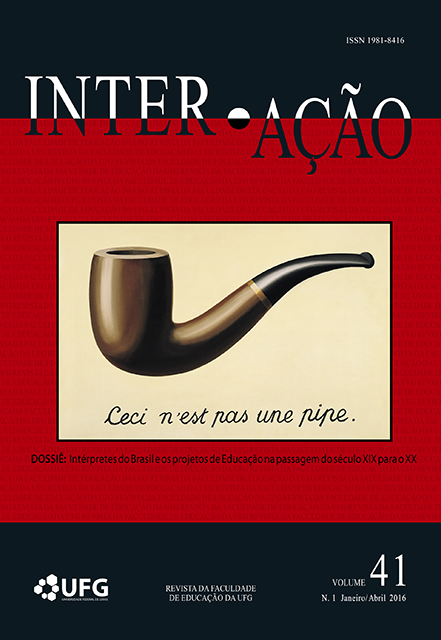PROBLEMATIZAÇÕES ÉTICAS: PERIGOS PARA A PESQUISA EM EDUCAÇÃO COM GÊNERO E SEXUALIDADE
DOI:
https://doi.org/10.5216/ia.v41i1.36445Keywords:
Ética em Pesquisa. Pesquisa em Educação. Gênero. Sexualidade.Abstract
Artigo teórico que trata da ética em pesquisa envolvendo seres humanos, com especial ênfase às pesquisas que tematizem gênero e sexualidade. A Resolução 466/2012, que regula a ética em pesquisa envolvendo seres humanos no Brasil, está baseada em um modelo válido para as ciências biomédicas, mas que não atende às problematizações das investigações das ciências sociais e humanas. Destacam-se as críticas a esse modelo oriundas da Saúde Coletiva e da Antropologia. A seguir, procede-se à análise da situação da ética em pesquisas acerca de gênero e sexualidade situadas nos campos feminista e dos estudos queer. Por fim, elegem-se as pesquisas com crianças, relevantes para o campo da Educação, como caso exemplar de investigações dificultadas pelo modelo de regulação vigente. Conclui-se que certos recortes teórico-metodológicos serão doravante impossíveis na hegemonia da ética biomédica.Downloads
Downloads
Published
How to Cite
Issue
Section
License
Inter-Ação uses the Creative Commons Attribution 4.0 License for Open Access Journals (Open Archives Initiative - OAI) as the basis for the transfer of rights. Open access means making documents available on the Internet free of charge, so that users can read, download, copy, distribute, print, search, or link to the full text of documents, process them for indexing, use them as input data for software programs, or use them for any other lawful purpose, without financial, legal, or technical barriers.
Authors publishing in this journal agree to the following conditions:
1) Authors retain copyright and grant the journal the right of first publication, with the work simultaneously licensed under the Creative Commons Attribution License, which permits redistribution of the work with attribution and first publication in this journal.
2) Authors are permitted to enter into additional, separate agreements for non-exclusive distribution of the version of the work published in this journal (e.g., for publication in an institutional repository or as a book chapter), with attribution and first publication in this journal.
3) Authors are permitted and encouraged to publish and distribute their work online (e.g. in institutional repositories or on their home page) at any time before or during the editorial process, as this may generate productive changes as well as increase the impact and citation of the published work.















